Doubts Grow Over Gaza Truce Plan

Doubts grew on Thursday over the fate of a Gaza truce plan that, as the week began, had raised hopes of an end to nearly seven months of war between Israel and Palestinian Hamas militants.
Israel was still waiting for Hamas's response to the latest proposal, said an Israeli official not authorised to speak publicly.
Mediators have proposed a deal that would halt fighting for 40 days and exchange Israeli hostages for potentially thousands of Palestinian prisoners, according to details released earlier by Britain.
Any such deal would be the first since a one-week truce in November saw 80 Israeli hostages exchanged for 240 Palestinian prisoners.
The war started with Hamas's October 7 attack on southern Israel that resulted in the deaths of 1,170 people, mostly civilians, according to an AFP tally based on Israeli official figures.
Israel estimates that 129 captives seized by militants during their attack remain in Gaza, but the military says 34 of them are dead.
Israel's retaliatory offensive, vowing to destroy Hamas, has killed at least 34,596 people in Gaza -- mostly women and children -- including 28 over the past day, according to the health ministry in the Hamas-run territory.
Much of Gaza has been reduced to a grey landscape of rubble. The debris includes unexploded ordnance that leads to "more than 10 explosions every week", with more deaths and loss of limbs, Gaza's Civil Defence agency said on Thursday.
Humanitarians are struggling to get aid to Gaza's 2.4 million people, hundreds of thousands of whom have fled to Rafah, the territory's southernmost point, the United Nations says.
Senior Hamas official Osama Hamdan told AFP late Wednesday that the movement's position on the truce proposal was "negative" for the time being.
The group's aim remains an "end to this war", senior Hamas official Suhail al-Hindi said -- a goal at odds with the stated position of Israel's Prime Minister Benjamin Netanyahu.
Regardless of whether a truce is reached, Netanyahu vows to send Israeli troops into Rafah against Hamas fighters there. US officials reiterated their opposition to such an operation without a plan to protect the civilians.
US Secretary of State Antony Blinken has urged the Islamist movement to accept the truce plan.
"Hamas needs to say yes and needs to get this done," Blinken said Wednesday while in Israel on his latest Middle East mission.
In early April there had also been initial optimism over a possible truce deal, only to have Israel and Hamas later accuse each other of undermining negotiations.
Following a meeting with Blinken, Israel's opposition leader Yair Lapid insisted that Netanyahu "doesn't have any political excuse not to move to a deal for the release of the hostages".
Netanyahu faces regular protests in Israel calling on him to make a deal that would bring home the captives. On Thursday protesters set up over-sized photos of women hostages outside Netanyahu's Jerusalem residence. In Tel Aviv they again blocked a highway.
Demonstrators accuse the prime minister, who is on trial for corruption charges he denies, of seeking to prolong the war.
Fallout from the Gaza fighting has spread throughout the Middle East, including to the Red Sea region where commercial shipping has been disrupted.
US and allied warships have regularly shot down suspected drones and missiles fired by Iran-backed Yemeni rebels who say they act in solidarity with Palestinians.
Criticism of the war has intensified in the United States, Israel's top military supplier.
Demonstrations have spread to at least 30 US universities, where protesters have often erected tent encampments to oppose Gaza's ever-increasing death toll.
Talks on a potential deal to pause the bloodiest-ever Gaza war have been held in Cairo involving US, Egyptian and Qatari mediators.
Mairav Zonszein, senior analyst at the International Crisis Group think-tank, said he was pessimistic Hamas would agree to a deal "that doesn't have a permanent ceasefire baked into it".
A source with knowledge of the negotiations said on Wednesday that Qatari mediators expected a response from Hamas in one or two days.
The source said Israel's proposal contained "real concessions" including a period of "sustainable calm" following an initial pause in fighting, and the hostage-prisoner exchange.
The source said Israel's withdrawal from Gaza remained a likely point of contention.
Egypt was involved in a flurry of calls "with all the parties", the country's state-linked Al-Qahera News reported, citing a high-level Egyptian official who spoke of "positive progress".
Martin Griffiths, the UN aid chief, this week said "improvements in bringing more aid into Gaza" cannot be used "to prepare for or justify a full-blown military assault on Rafah".
The US military since last week has been building a temporary pier off Gaza to assist aid efforts. The pier is now more than half finished, the Pentagon said on Wednesday.
In Khan Yunis city near Rafah, foreign aid and borrowed equipment helped to "almost completely" restore the emergency department at Nasser Medical Complex, said Atef al-Hout, the hospital director.
Intense fighting raged in mid-February around the hospital, which Israeli tanks and armoured vehicles later surrounded.
Israel's army on Thursday said that among strikes over the previous day, a fighter jet hit "a military structure in central Gaza".
Witnesses and an AFP correspondent on Thursday reported air strikes in Khan Yunis and artillery bombardment in the Rafah area, while militants and Israeli troops battles in Gaza City to the north.
Nadi, her own arm bandaged after they were wounded in a strike, feared the hospital's power could go out, cutting the boy's oxygen and killing him.
"I call on the world to transfer my son for treatment abroad. He is in a very bad condition," she said, breaking down in tears.
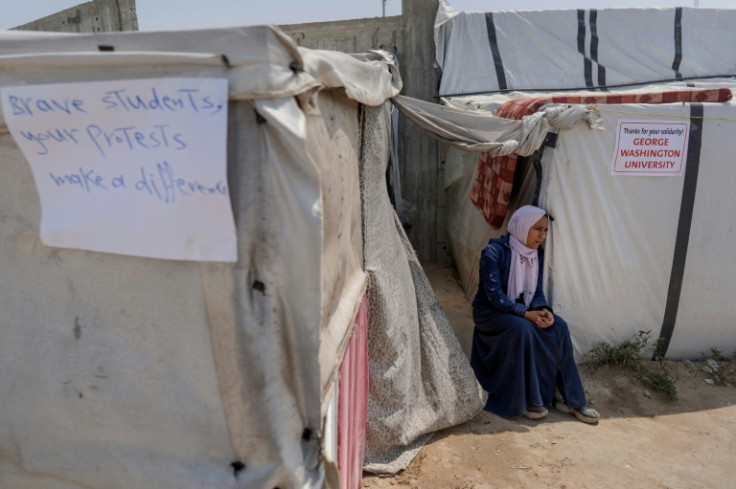
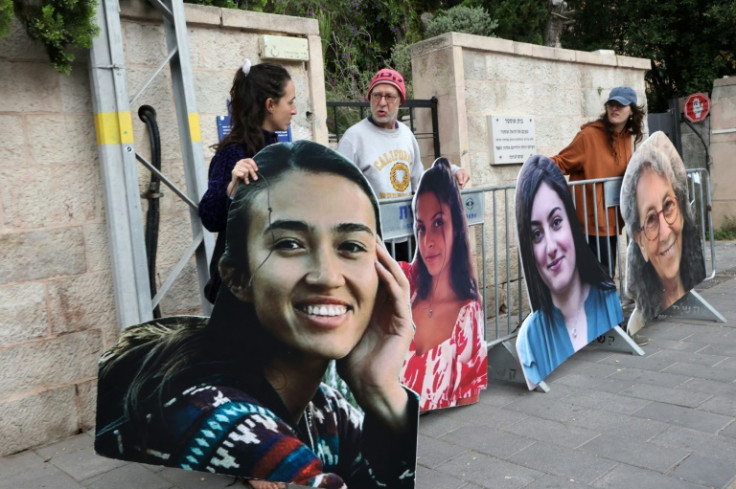
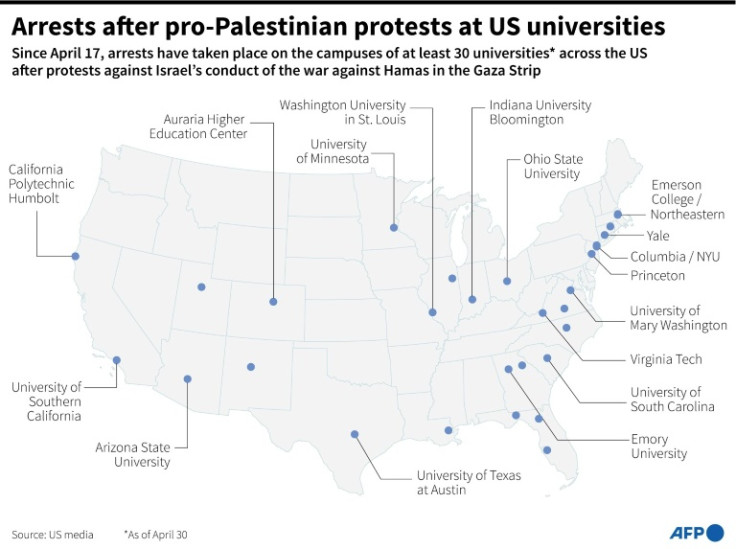
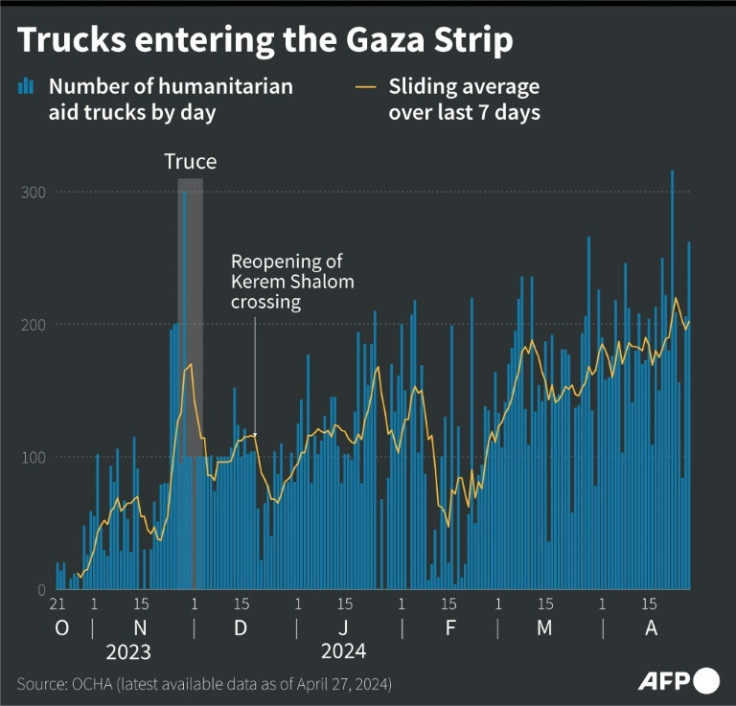
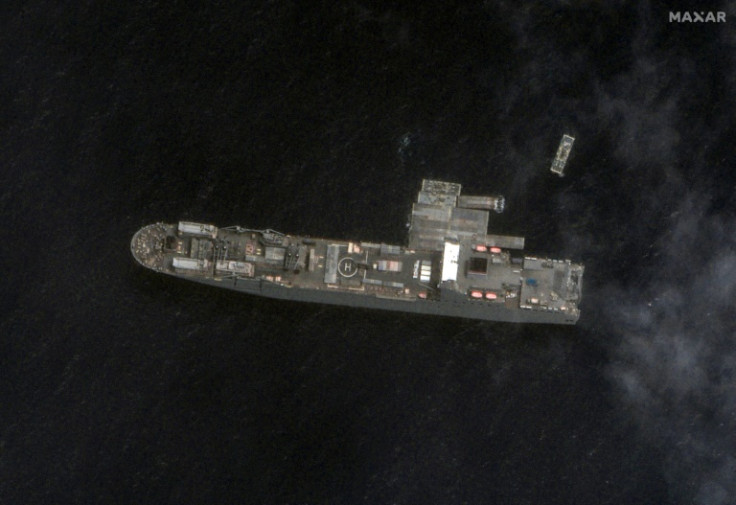
© Copyright AFP 2025. All rights reserved.





















